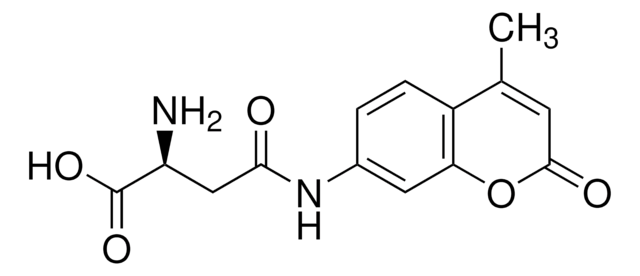SCP0080
Caspase 2/3 Substrate
≥95% (HPLC), lyophilized
Anmeldenzur Ansicht organisationsspezifischer und vertraglich vereinbarter Preise
Alle Fotos(1)
About This Item
Empirische Formel (Hill-System):
C34H44N6O15
Molekulargewicht:
776.74
UNSPSC-Code:
12352202
NACRES:
NA.32
Empfohlene Produkte
product name
Caspase 2/3 Substrate,
Assay
≥95% (HPLC)
Form
lyophilized
Zusammensetzung
Peptide Content, ≥80%
Lagerbedingungen
protect from light
Lagertemp.
−20°C
Amino Acid Sequence
Ac-Leu-Asp-Glu-Ser-Asp-AMC
Anwendung
Caspase 2/3 Substrate (Ac-LDESD-AMC) (Acetyl-Leu-Asp-Glu-Ser-Asp-amino-4-methylcoumarin) is a fluorogenic substrate that may be used to detect caspase 2 or caspase 3.
Lagerklassenschlüssel
11 - Combustible Solids
WGK
WGK 1
Flammpunkt (°F)
Not applicable
Flammpunkt (°C)
Not applicable
Analysenzertifikate (COA)
Suchen Sie nach Analysenzertifikate (COA), indem Sie die Lot-/Chargennummer des Produkts eingeben. Lot- und Chargennummern sind auf dem Produktetikett hinter den Wörtern ‘Lot’ oder ‘Batch’ (Lot oder Charge) zu finden.
Besitzen Sie dieses Produkt bereits?
In der Dokumentenbibliothek finden Sie die Dokumentation zu den Produkten, die Sie kürzlich erworben haben.
Andreas Schweizer et al.
The Journal of biological chemistry, 278(43), 42441-42447 (2003-08-16)
The cell death protease caspase-2 has recently been recognized as the most apical caspase in the apoptotic cascade ignited during cell stress signaling. Cytotoxic stress, such as that caused by cancer therapies, leads to activation of caspase-2, which acts as
Guoxing Fu et al.
Apoptosis : an international journal on programmed cell death, 13(11), 1291-1302 (2008-09-10)
Caspase-3, -6 and -7 cleave many proteins at specific sites to induce apoptosis. Their recognition of the P5 position in substrates has been investigated by kinetics, modeling and crystallography. Caspase-3 and -6 recognize P5 in pentapeptides as shown by enzyme
Unser Team von Wissenschaftlern verfügt über Erfahrung in allen Forschungsbereichen einschließlich Life Science, Materialwissenschaften, chemischer Synthese, Chromatographie, Analytik und vielen mehr..
Setzen Sie sich mit dem technischen Dienst in Verbindung.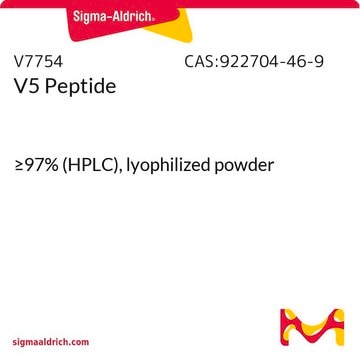
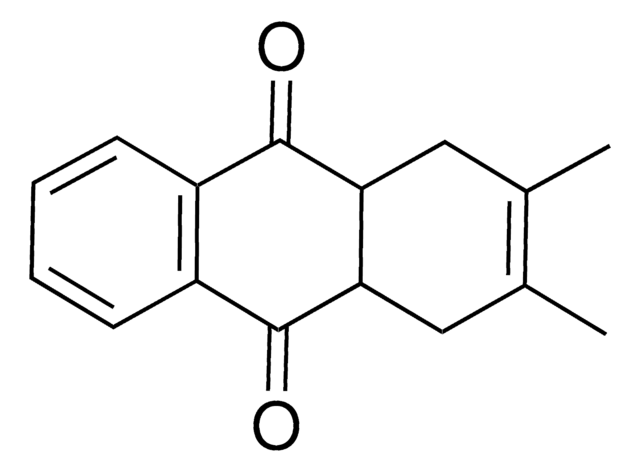
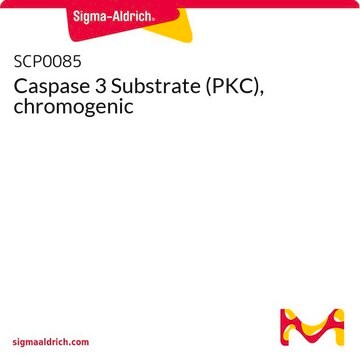
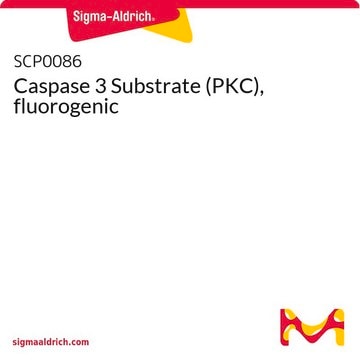

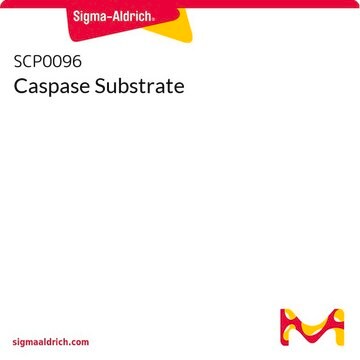
![10-O-[(2R,3S)-3-(Benzoylamino)-2-hydroxy-3-phenylpropanoyl]-10-O-deacetylpaclitaxel certified reference material, TraceCERT®, Manufactured by: Sigma-Aldrich Production GmbH, Switzerland](/deepweb/assets/sigmaaldrich/product/images/664/284/58706ab2-a34b-45f2-9e0e-c9c3bd1f8d78/640/58706ab2-a34b-45f2-9e0e-c9c3bd1f8d78.jpg)
